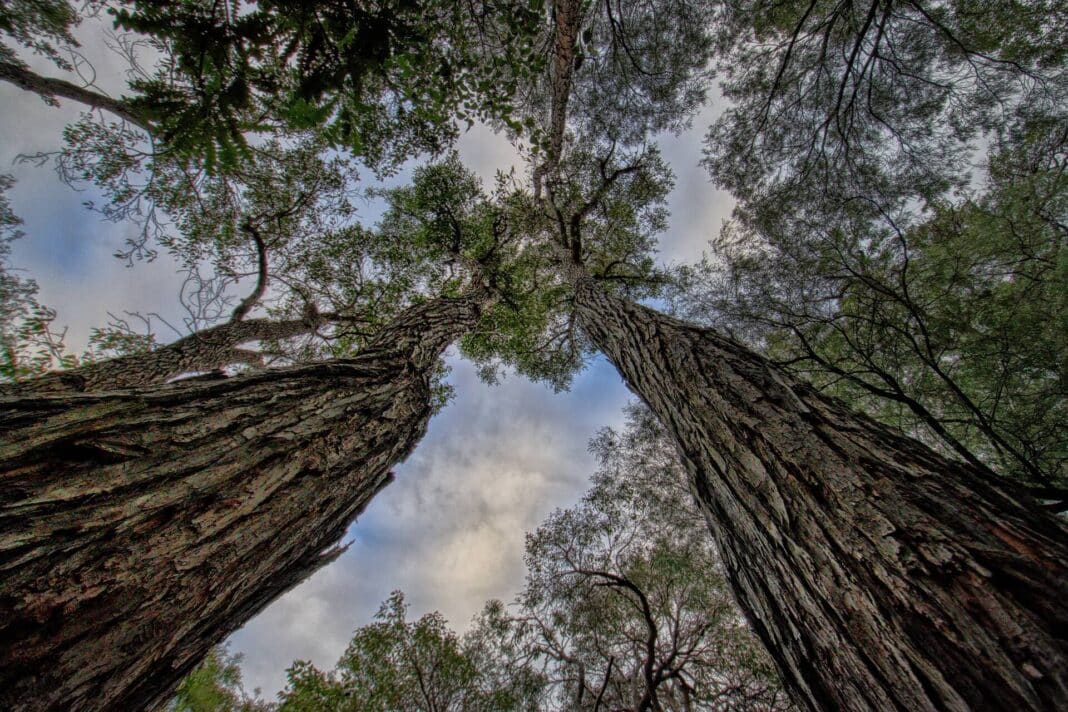The West Australian government has announced plans to employ 50 additional workers to care for the South West forests before a ban on tree felling for timber commences in January.
Peter Milne of Fairfax Media reports that Thursday’s state budget will allocate $36 million to support these new full-time positions. The Department of Biodiversity, Conservation and Attractions, and the Forest Products Commission will use these funds to implement the 2024-2033 Forest Management Plan.
Environment Minister Reece Whitby stated that the people of Western Australia strongly favor protecting their native forests.
The allocated funding will serve to enhance forest resilience and support conservation efforts. “We must act now to conserve the precious biodiversity of the South West forests over the next decade,” he said.
“The impact of climate change on our forests can’t be ignored.”
UN report prompts jarrah ban with controversial exemptions
In 2022, the UN Intergovernmental Panel on Climate Change (IPCC) warned that the northern jarrah forest, stretching from Perth to Collie, faces potential collapse due to hotter, drier conditions and frequent bushfires. A 10-year plan, to be released later this year, includes a ban on harvesting timber from native forests, announced by the McGowan government in 2021.
However, the ban has two controversial exemptions: tree felling for forest health and clearing for mining. Both the forestry industry and conservationists express concerns about thinning, which removes vegetation to help the remaining plants grow. While one side fears insufficient timber supply, the other worries about overusing the practice to maintain it.
Bauxite mining is not included in the plan
The plan does not govern mining, mainly by Alcoa and South32, which clear about 1000 hectares of forest annually to mine bauxite to feed their four alumina refineries.
Earlier this year, Milne revealed that Alcoa, the biggest bauxite miner, had not rehabilitated a single hectare of the almost 28,000 hectares cleared by the US miner in 60 years of operating in WA.
According to Gavin Butcher, an industry analyst and for more than 20 years a director of the WA Forest Products Commission, the rehabilitation results have been woeful.
“The species diversity is very weak, and as such, the understorey is made up of only a couple of species when the previous forest had been enormously rich,” Mr Butcher said.
Gavin Butcher regularly contributes to the publication and has covered the WA Logging Ban for Wood Central.
“It is true that Alcoa has achieved the inputs to affect rehabilitation, but alas none of the outcomes are satisfactory.”
“It is quite clear from science published that maintaining the industry at its current level is not a threat, and in fact could be beneficial in thinning the forests.”
“The current approach where the only timber provided will be sourced from mine clearing demonstrates the perversity of the government’s approach,” he said.
A forest mined for bauxite is much harder to restore to a functioning ecosystem than one cleared for timber as all vegetation is removed and the deeper soil layers are changed forever.
Supporting strip mining is illogical
In an opinion piece for Wood Central last month, Jack Bradshaw – who participated in the development of the WA Regional Forestry Agreement – argued that closing native forests had “nothing to do with growth rate or carbon stocks and everything to do with green ideology and city votes…all while continue to support strip mining of the jarrah forest for bauxite at ever increasing rates.”
The money to be allocated in Thursday’s budget is in addition to the $80 million Native Forestry Transition Plan to assist those affected by the native logging ban and $350 million allocated to grow new softwood plantations.






